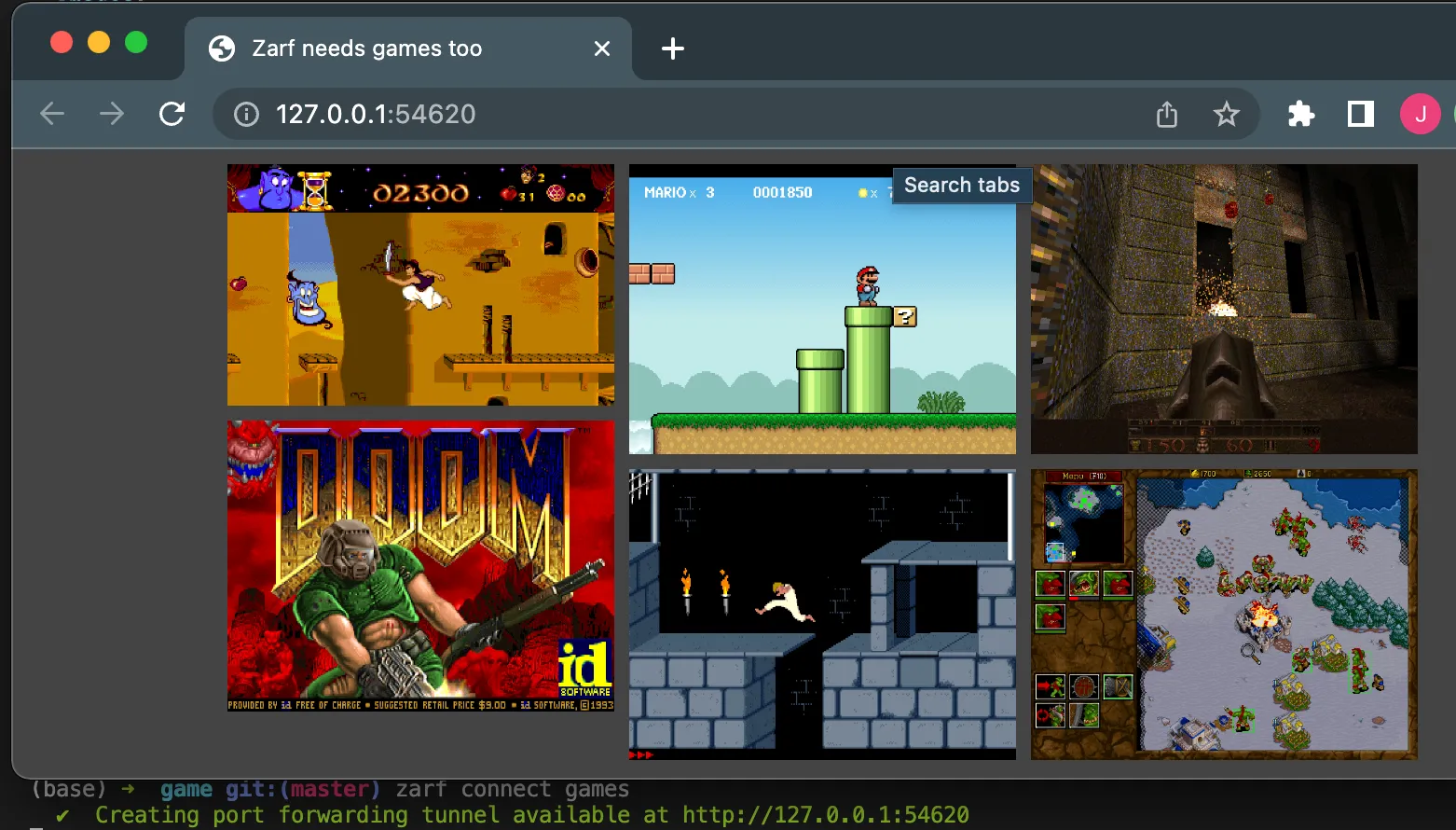Adopt Pre-Existing Resources
In this tutorial, you will create a test workload prior to initializing Zarf. After that you will then use Zarf to adopt those workloads, so you can manage their future lifecycle with Zarf.
- You’ll need an internet connection to grab the Zarf Init Package if it’s not already on your machine.
-
Prior to this tutorial you’ll want to have a working cluster. But unlike our other tutorials you don’t want Zarf initialized.
-
Zarf binary installed on your $PATH: (Installing Zarf)
We’re going to use the manifests from the Deploying a Retro Arcade tutorial for this example. So if you haven’t yet, clone the Zarf repository, and navigate to the cloned repository’s root directory.
- Create the dos-games namespace
- Use the dos-games example manifests, to deploy the dos-games deployment and service to your Kubernetes cluster.
- Use the
kubectl port-forwardcommand to confirm you’ve deployed the manifests properly.
- Navigate to
http://localhost:8000in your browser to view the dos-games application. It will look something like this:

- Use the Initializing a K8s Cluster tutorial, to initialize Zarf in the cluster.
The iframe was pointing to the wrong file, and this likely would be better as an admonition.
- Use the
zarf package deploycommand with the--adopt-existing-resourcesflag to adopt the existing dos-games resources in thedos-gamesnamespace.
- You’ll notice the dos-games namespace is no longer excluded from Zarf management as it has the
app.kubernetes.io/managed-by=zarflabel. This means that Zarf will now manage any resources in this namespace.
- You can also now use the
zarf connectcommand to connect to the dos-games application. Again it will look something like this.

At this point the dos-game package is managed by Zarf and will behave just like a package initially deployed with Zarf.